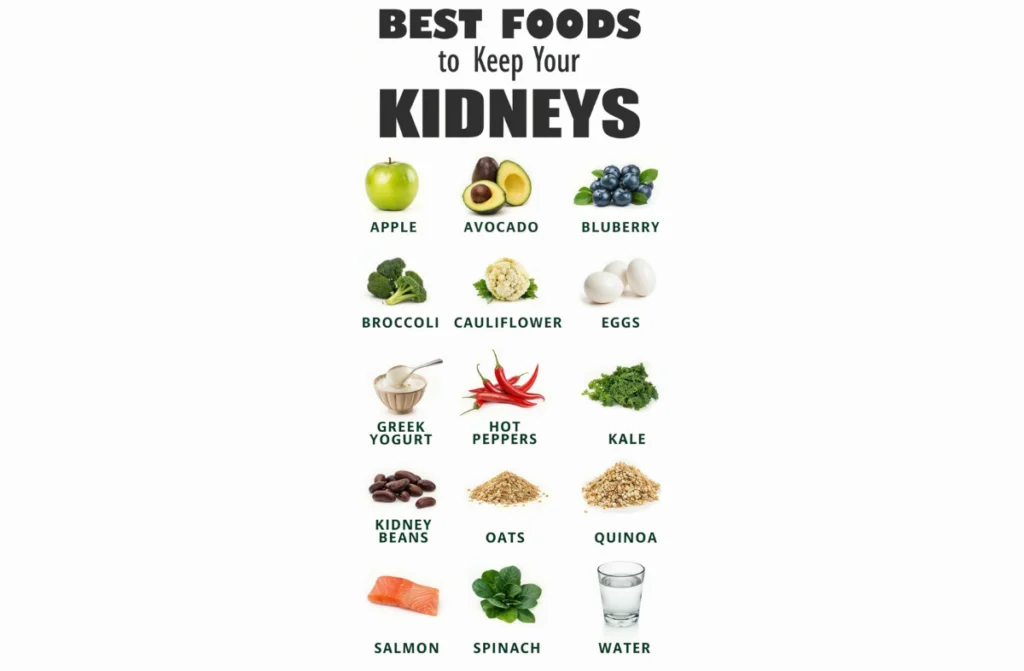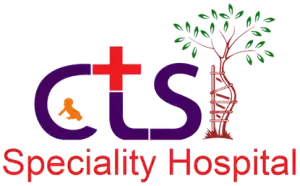Kidney disease can feel overwhelming, but making the right food choices can make a big difference. The best foods for kidney disease help protect kidney function, manage symptoms, and promote overall health. In this blog, we’ll explore kidney-friendly foods and their benefits, along with a guide to creating a kidney-friendly diet plan.

Diet and Kidney Disease
Your kidneys work hard to remove waste and balance fluids. When they don’t function properly, so a regular exercises and good diet becomes essential. The right foods can:
- Support kidney function.
- Reduce toxin buildup.
- Minimize complications of kidney disease.
Following a kidney failure diet plan or a low protein diet for kidney patients can help ease the load on your kidneys. These diets focus on lowering sodium, phosphorus, and protein while increasing kidney-friendly nutrients.
10 Best Foods for Kidney Disease
When managing kidney disease, you need foods that are low in sodium, potassium, and phosphorus. Let’s look at 10 of the best foods for kidney disease that are both nutritious and delicious.
Cauliflower: A Versatile Veggie for Kidney Health
Cauliflower is a powerhouse of nutrients and a great substitute for high-potassium foods like potatoes. It contains:
- Vitamin C for immunity.
- Fiber for digestion.
- Compounds that reduce inflammation.
Tips to enjoy cauliflower:
- Roast it with olive oil and garlic.
- Mash it as a potato alternative.
- Add it to soups or stews.
Blueberries: Antioxidant-Rich Berries
Packed with antioxidants, blueberries are a kidney-friendly snack. They are low in potassium and high in nutrients that promote kidney health, such as:
- Vitamin C.
- Fiber.
- Anti-inflammatory compounds.
How to eat blueberries:
- Add them to oatmeal or smoothies.
- Snack on them fresh.
- Use them as a topping for yogurt.
Sea Bass: Quality Protein with Omega-3s
Sea bass provides high-quality protein without overloading your kidneys. It’s also rich in omega-3 fatty acids, which help reduce inflammation and improve heart health.
Simple ways to enjoy sea bass:
- Grill with herbs and lemon.
- Bake with olive oil and garlic.
- Pair with steamed vegetables.
Red Grapes: Sweet and Safe for Kidneys
Red grapes are sweet, refreshing, and perfect for a kidney-friendly diet. They are low in potassium and full of antioxidants, including flavonoids, which reduce inflammation.
Ideas for red grapes:
- Eat them fresh as a snack.
- Add them to salads.
- Freeze them for a cool treat.
Egg Whites: Pure Protein without Excess Phosphorus
Egg whites are an excellent protein source for those who take diet for kidney disease patients. Unlike yolks, they are low in phosphorus, making them a safe choice.
Ways to use egg whites:
- Make an egg white omelet.
- Add them to smoothies for extra protein.
- Use them in baking recipes.
Garlic: A Low-Sodium Flavor Enhancer
Garlic adds flavor to meals without the need for extra salt. It also has anti-inflammatory properties and contains nutrients like vitamin C and manganese.
Garlic tips:
- Use it in sautés and soups.
- Roast it for a milder flavor.
- Mix it into marinades.
Buckwheat: Fiber-Packed and Gluten-Free
Buckwheat is a best Foods for Kidney Disease whole grain that’s low in phosphorus and a great source of fiber. It’s also gluten-free, making it suitable for people with additional dietary needs.
How to enjoy buckwheat:
- Cook it as a porridge.
- Use it as a base for salads.
- Try buckwheat pancakes.
Olive Oil: Healthy Fats for Energy and Flavor
Olive oil is a great source of healthy fats and antioxidants. It provides energy without overloading the kidneys.
Olive oil ideas:
- Use it as a salad dressing base.
- Drizzle over roasted vegetables.
- Cook with it instead of butter.
Bulgur: Whole Grain for Kidney Health
Bulgur is another kidney-friendly whole grain that’s low in potassium and phosphorus. It’s rich in fiber, making it ideal for digestion.
Ways to enjoy bulgur:
- Prepare it as a side dish.
- Add it to soups or stews.
- Use it in grain salads.
Cabbage: Low in Potassium with Digestive Benefits
Cabbage is low in potassium, making it a kidney-friendly vegetable. It’s also rich in vitamins K and C, along with fiber to aid digestion.
How to use cabbage:
- Add it to stir-fries or soups.
- Make coleslaw with olive oil.
- Steam it as a simple side dish.
Benefits of a Kidney-Friendly Diet Plan
Eating the best foods for kidney disease can:
- Help manage blood pressure and diabetes, which are leading causes of kidney disease.
- Reduce the risk of further kidney damage.
- Improve energy levels and overall health.
A kidney failure diet plan focuses on:
- Controlling sodium and phosphorus intake.
- Reducing protein consumption for a low protein diet for kidney patients.
- Including kidney-friendly fruits, vegetables, and grains.
Foods to Avoid in a Kidney Diet Plan
While some foods are beneficial, others can harm your kidneys. Here’s what to limit or avoid:
- High-sodium foods: Processed snacks, canned soups, and fast food.
- High-potassium foods: Bananas, oranges, and potatoes.
- Phosphorus-rich foods: Dairy products, nuts, and sodas.
Tips to stay on track:
- Read food labels carefully.
- Choose fresh, unprocessed foods.
- Consult a dietitian for a personalized diet for kidney disease patients.
Conclusion
The best foods for kidney disease provide essential nutrients while protecting your kidneys. By making smart food choices, you can support your health and manage symptoms effectively. If you need guidance, contact CTS Hospital to create a personalized kidney-friendly diet plan. Their team of specialists can help you navigate your journey toward better health.
